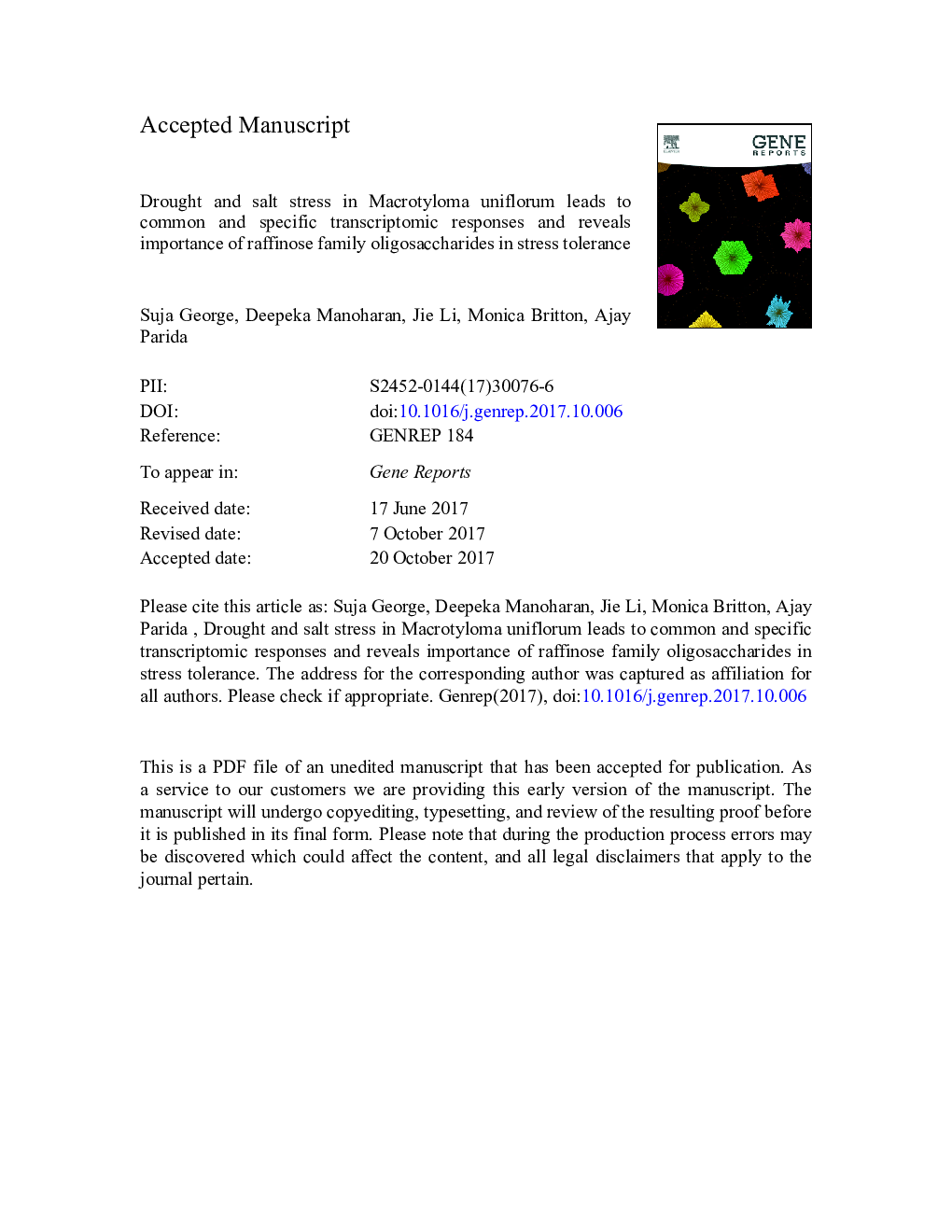| Article ID | Journal | Published Year | Pages | File Type |
|---|---|---|---|---|
| 8646247 | Gene Reports | 2018 | 35 Pages |
Abstract
Abiotic stresses affect crop productivity worldwide. Understanding molecular mechanisms of plant abiotic stress tolerance is important for developing stress tolerant crop plants for sustaining crop productivity in future. Horse gram (Macrotyloma uniflorum Lam.) is a grain legume largely cultivated by marginal farmers and is known for excellent nutritional and remedial properties and better adaptability to harsh environmental conditions. In this study, we subjected M. uniflorum seedlings to salt and drought stress and carried out whole transcriptome profiling of leaf and root tissues. Assessing the global transcriptome changes under drought and salt stress resulted in identification of several genes contributing to stress response in this species. Overall, more transcriptomic changes were observed in root tissue compared to leaf tissue. The study identified stress responsive genes commonly and differently regulated under stress/tissue conditions. Several Differentially Expressing Genes (DEGs) in our data were identified as enzymes involved in the synthesis of raffinose family oligosaccharides (RFOs), pointing towards major role for RFOs such as galactinol and raffinose in tolerance to drought/salt stress in M. uniflorum, possibly through osmoprotection and/or ROS scavenging. The upregulation of a few genes reported to result in ABA insensitivity point towards reduced abscisic acid sensitivity and increased water loss rate in M. uniflorum under the experimental conditions. Our data will facilitate further molecular studies on stress tolerance of M. uniflorum. The DEGs from our results are potential candidates for understanding and engineering abiotic stress tolerance in plants.
Related Topics
Life Sciences
Biochemistry, Genetics and Molecular Biology
Genetics
Authors
Suja George, Deepeka Manoharan, Jie Li, Monica Britton, Ajay Parida,
